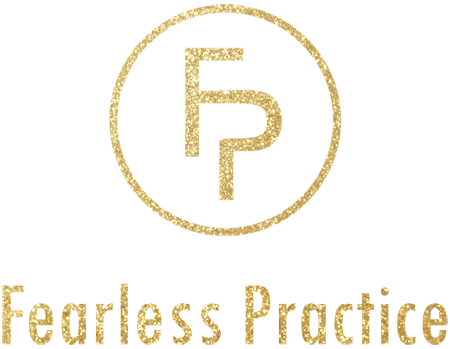ically
SETTING AND RAISING YOUR RATES ETHICALLY FOR NEW AND CURRENT CLIENTS | EP 32

When was the last time you raised your hourly rate? Do you feel anxious or nervous when it comes to addressing your hourly fee with new or current clients, especially when you know you need to increase your income to continue providing top-quality therapy?
There are a lot of emotions involved in setting and raising your rates and they can sometimes hold you back from making progress in your business if you don’t address them. I have struggled with this too. So I hope this episode will help you to decide how to raise your rates ethically and where to start when setting your rates.
Jane is an all-in-one health and wellness practice management platform designed to be helpful to you, no matter how or where you practice. Available online and on any device, Jane offers branded online booking, beautiful scheduling, insurance management, customizable charting, online intake forms, patient reminders, integrated payment processing, online appointments (telehealth) and more! Use the code FEARLESS at signup to receive your first month completely free!
In This Episode
- What to consider when setting your rate
- Overcoming the emotional toll of raising your rates
- How to ethically raise your rates
What to consider when setting your rate
A lot goes into deciding on an amount to charge per hour for your time and energy with a client. It can make it easier for you, and them, to understand your value by making sense of what goes into it behind the scenes.
I recommend setting your rates based on your skills, experience, training, outcomes, and the unique qualities that you have as a therapist.
‘I like that idea of setting prices [and] raising rates not by defining your value through what others think you should charge but more so of charging what you are worth, and there are many factors that can decide your worth.’ – Julia Smith
If you are starting from the very beginning, I recommend doing some research on Psychology Today and finding out how much therapists in your field are charging in your area. Find the middle range, and add on an extra $10.
For new clients, I recommend (bravely!) raising your rates, especially once you are three weeks full, and keep doing that until you find a good flow of having a session or two available every three weeks. If it doesn’t work, then you can lower the rates again, no problem (as the new rates only apply to new clients).
Overcoming the emotional toll of raising your rates
Some therapists may not be supportive or may judge your choices, but don’t let them stop you.
Even though some may disapprove, some therapists are in the same boat as you and will encourage you to pursue your value as a therapist and the life you are building for yourself.
‘When you start to raise your rates for new clients, be prepared that maybe not everybody in your community is going to be happy about that. What helped me to get through that was to remember why and how I raise my rates, that my value is based on my skills, experience … as well as [the] memories of people supporting me in doing private practice.’ – Julia Smith
Create a memory toolkit of all the times that clients, colleagues, or supervisors compliment you and the quality of your work and look into it whenever you need support.
Remind yourself of why you started your Canadian private practice. For me, I wanted to achieve a healthy work-life balance because I did not want to see a lot of clients and get burned out. I wanted to provide high-quality therapy to my clients while also making time to enjoy life.
How to ethically raise your rates
The simple answer is to not exploit your clients. Make sure that your prices are shown clearly on your website, Psychology Today, and Jane App.
Therefore, when people are looking at your services they will know exactly what your prices are before engaging with you.
Some people may still contact you for a session, asking for a discount. Instead of a sliding scale, send out alternative options for people that cannot afford your rate to other qualified therapists in your area that fit their budget.
When raising your rates for clients that you are currently seeing, send out an email stating that you are raising your rates and they can either pay the new rate or reach out to you if it’s too expensive. If a client cannot afford your new rate you can refer them to a therapist within their budget or offer them a discount. Keep in mind that, depending on the situation, it may be unethical to end therapy with a client and refer them out right away.
‘It is heart-wrenching and it sucks but … I don’t want to give a discount to one of my current clients and not offer that to all of my clients.’ – Julia Smith
If you can afford to do so, when raising rates offer all current clients the option to stay at the same price level if they cannot afford the price increase. This method keeps it equitable because it allows you to offer a discount to all current clients who may not be able to afford your new rate.
If you want to provide discounts for current clients, with Jane App, you can add discounts onto the client’s account that will automatically charge from the invoice.
Connect With Me
Resources Mentioned and Useful Links:
Ep 31: Heidi Sturgeon: A Fellow Canadian Therapist’s Private Practice Journey | EP 31
Article: How to Set Up a Canadian Private Practice Website
Sign up for my free e-course on How to Start an Online Canadian Private Practice
Jane App (use code FEARLESS for one month free)
Research the prices of other therapists in your area on Psychology Today
Rate, review, and subscribe to this podcast on Apple Podcasts, Google Podcasts, Stitcher, Spotify, Amazon, and TuneIn


About Jules Smith
Jules Smith, MEd, RCT, CCC is a registered Counselling Therapist who owns a group private practice in Halifax, Nova Scotia. They are also the owner of Fearless Practice Consulting and hosts the Fearless Practice podcast. Through the Fearless Practice podcast, they provide invaluable insights and practical advice on starting and growing a successful Canadian private practice.
Jules also has written articles for the Canadian Counselling and Psychotherapy association. You can learn more at www.ccpa-accp.ca/blog/.


